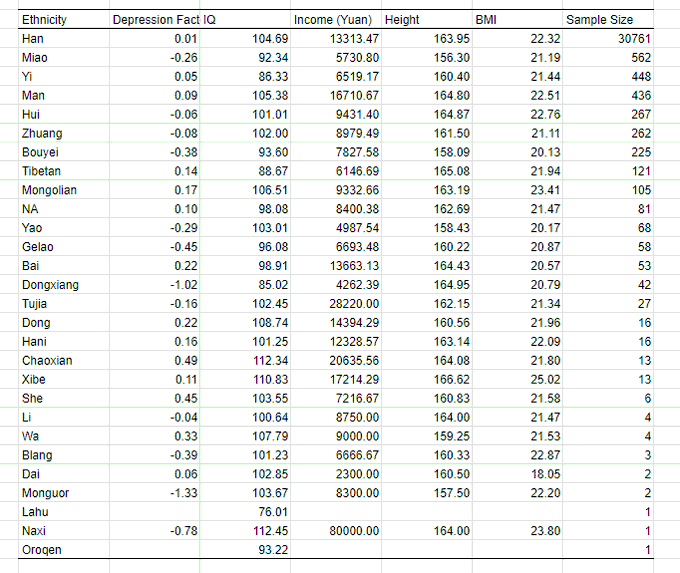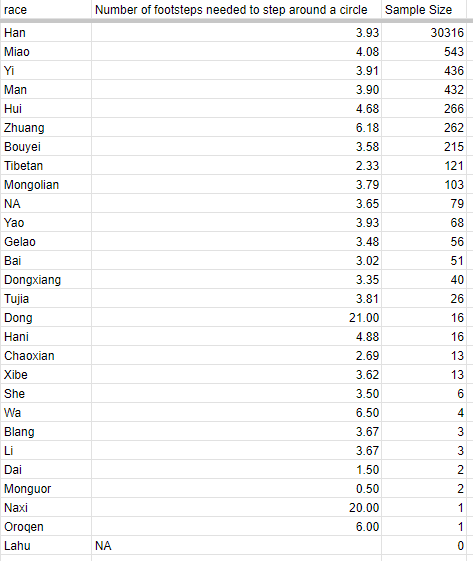Ethnic Differences Within China
General race differences
Note: In this post, p-values are relative to the Han Chinese, missing values are removed, and no age adjustments are made. The sample sizes don’t mean much - a lot of times it merely counts the amount of non-missing values in one category.
I calculated the mean age by race, in order to determine if the following findings would be influenced by age bias:
Aggregate differences are fairly small, besides the fact that the Yi are rather young.
Race and sleeping
On average, ethnicities that nap rarely tend to sleep more hours (r = -.63, p = .011, only within n > 20). Between ethnicities, there is no association between napping and bedtime (r = -.18, p = .5, only within n > 20).
Notably, only 13% of Tibetans nap in comparison to 50% of the Han (p < .001), but sleep about half an hour longer on average (p < .001).
Race and drinking
(regular drinking here implies more than 3 drinks a week)
Han, Man, Tibetan, and Xibe people all rarely drink. Miao, Yi, Zhuang, Bouyei, Mongolian, Yao, and Gelao people are more heavy drinkers. Dongxiang do not drink, as it is prohibited according to their religious beliefs. All of the following differences reach p < .001 relative to the Han according to post-hoc testing (using Tukey HSD):
Hui - Han
Miao - Han
Mongolian - Han
Yao - Han
Yi - Han
Race and number of footsteps to complete a full circle
For whatever reason, there are substantial race differences in… the number of footsteps individuals need take to complete a circle. Yes, they did ask this.
These are the differences that passed p < .001 under the Tukey post-hoc test:
Naxi-Han (but n = 1)
Tibetan-Han
Zhuang-Han
Race differences in happiness
Using:
Differences that pass post-hoc at p < .001:
Man-Han
Miao-Han
Race differences in Communist sympathy
com = % of race that are supporters of the Communist party.
ANOVA yields p < .01, but no post-hoc test passes p < .05. So there are race differences in Communist support, it’s just not clear which ones support it more or less in comparison to the Han.
Race and beliefs about success:
Various questions like the one above were asked, regarding what caused people to be successful. I converted these likert scales to z-scores, as the likert score doesn’t mean much.
ANOVA results:
Luck: p < .001
Effort: p < .001
Talent: p < .001
Tukey HSD for luck that passes p < .05:
Nothing.
Tukey HSD for effort that passes p < .05:
Yi-Han (p < .001)
Tukey HSD for talent that passes p < .05:
Nothing
















No data on Hakka people, I’m disappointed ☹️